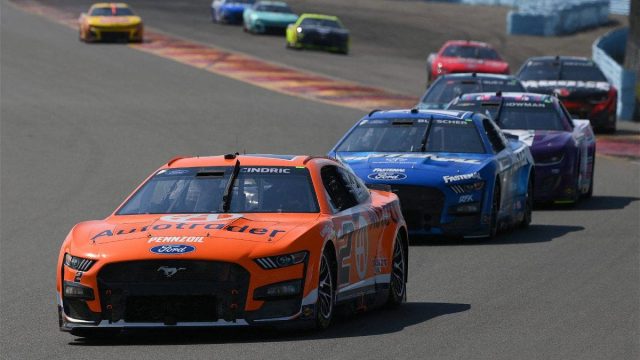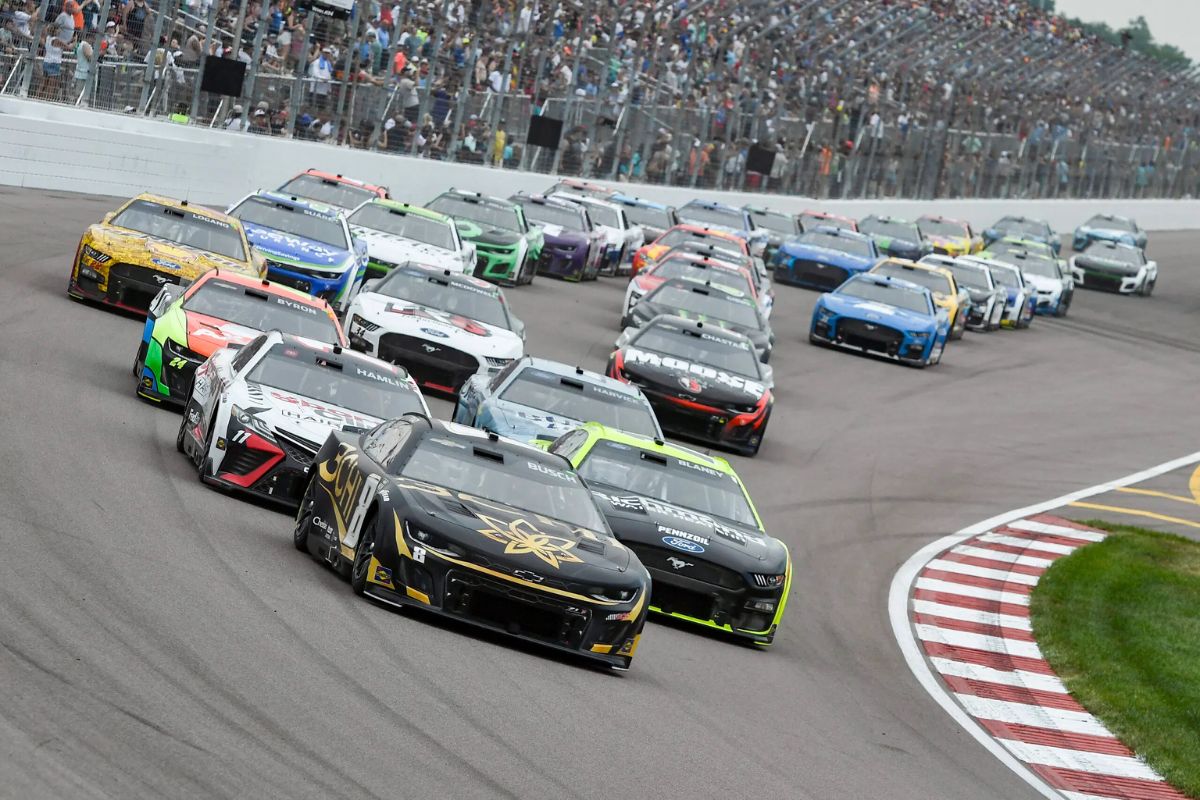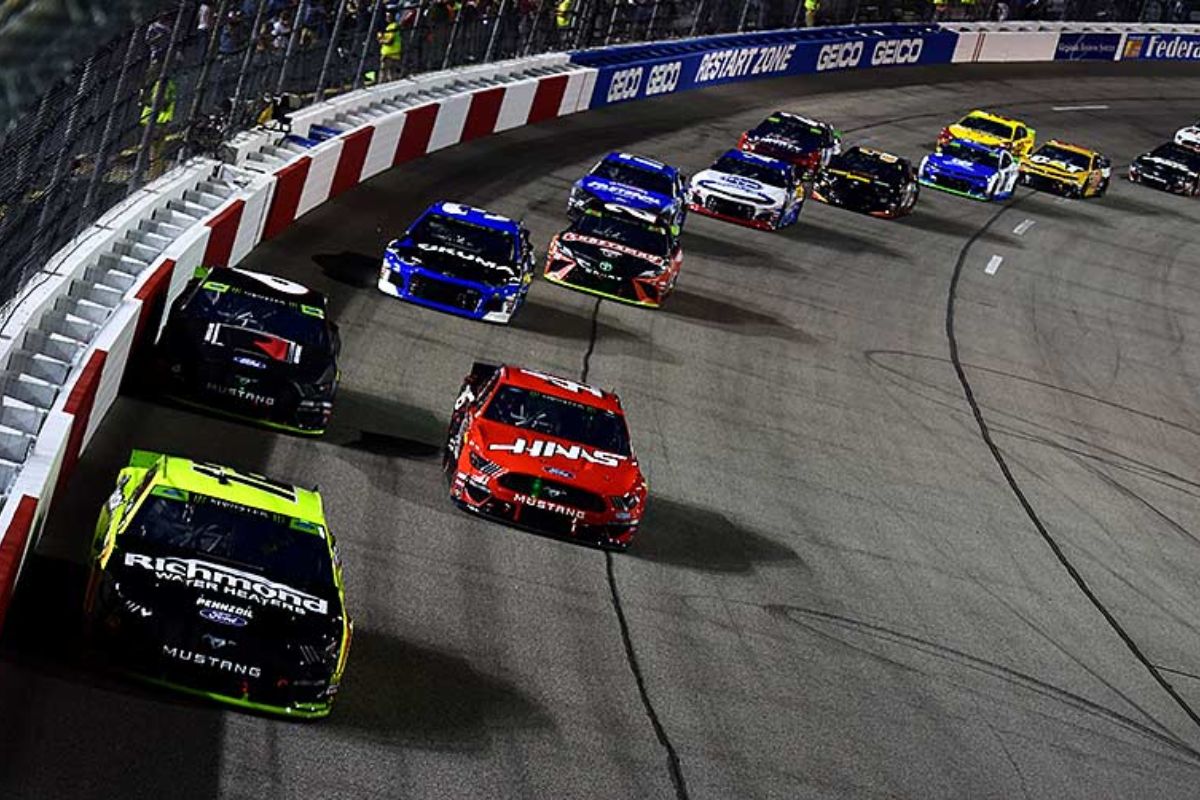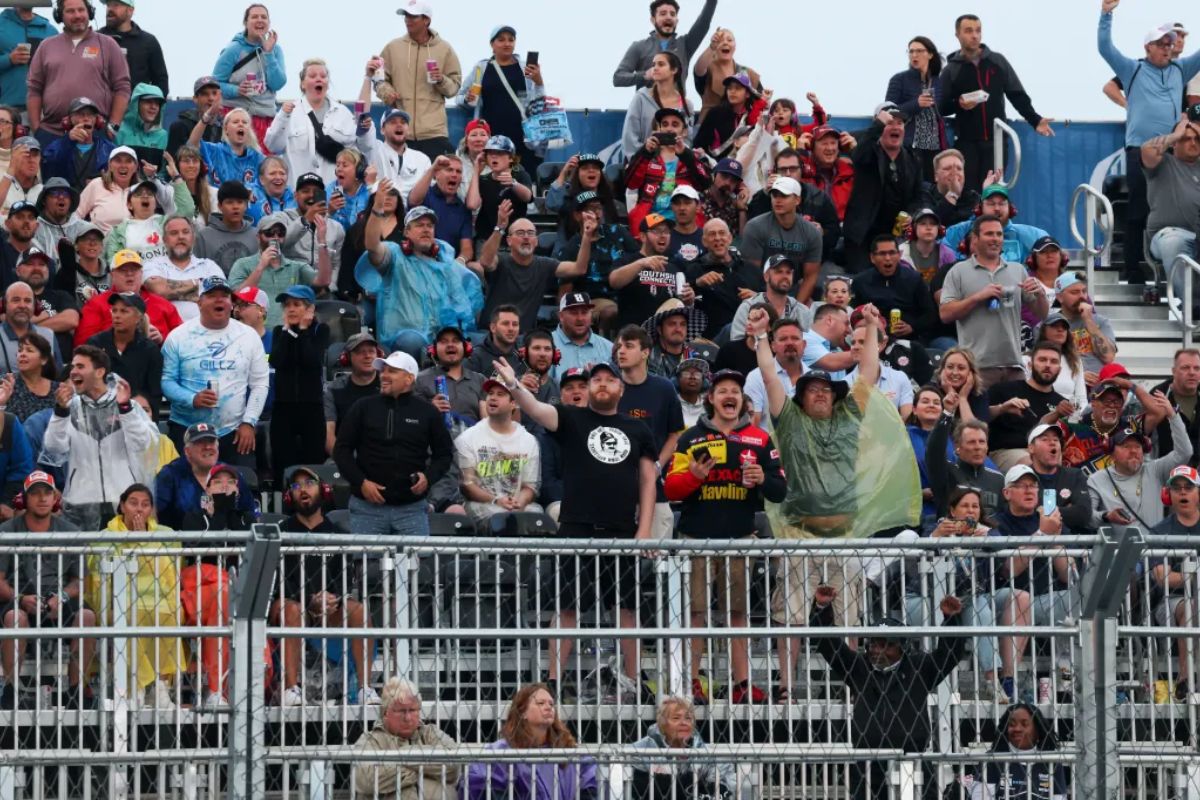NASCAR’s Charter Crisis: NASCAR’s recent financial upheaval presents notable implications not only for its billion-dollar partners but also for the passionate fanbase that has supported the sport for generations. As scrutiny mounts over the charter system and the sustainability of team investments, the balance of power appears precariously tilted. Established teams may benefit from long-term agreements, yet the rigidity of entry terms for newcomers raises questions about competition and inclusivity. Amidst this backdrop, fans are increasingly vocal about their concerns, signaling a potential crisis of confidence that could reshape the sport’s landscape. What might this mean for NASCAR’s future?
Key Highlights
- The expiration of NASCAR charters raises concerns about investor eligibility, impacting financial stability for both teams and billion-dollar partners.
- Ongoing negotiations and potential changes to the charter system could disrupt established revenue streams, unsettling existing partnerships and team operations.
- Fans fear that external investments, particularly from sovereign wealth funds, may compromise the sport’s integrity and competitive balance.
- The demand for transparency from NASCAR leadership is critical for maintaining fan trust amid evolving financial landscapes and ownership dynamics.
Overview of NASCAR Charter Controversies
The impending expiration of NASCAR Charters and the contentious rules surrounding their negotiation have ignited notable debate within the motorsport community, raising critical questions about investor eligibility and the general sustainability of racing teams.
At the heart of this controversy lies the tension between traditional team ownership and the influx of external investors, many of whom bring substantial financial backing but lack deep-rooted ties to the sport. This shift poses fundamental challenges to the integrity of NASCAR’s competitive landscape and its economic viability.
The current charter system, established in 2016, was designed to provide a level of stability for teams, allowing them to secure a share of the sport’s revenue stream. However, as the expiration date approaches, the rules governing the transfer and negotiation of charters are under intense scrutiny.
Critics argue that the existing framework may disproportionately favor well-established teams, effectively sidelining new entrants and stifling competition. Additionally, the ambiguity surrounding investor eligibility has led to concerns about who can legitimately participate in the sport’s future.
As stakeholders examine the intricacies of the upcoming charter negotiations, it is evident that the decisions made will have far-reaching implications. The potential for a fractured ecosystem looms large, as teams grapple with dwindling resources while attempting to navigate an increasingly complex financial landscape.
The outcome of these negotiations will determine the fate of individual teams and the broader health and sustainability of the NASCAR brand itself.
Debated Clauses in NASCAR’s Draft Charter
Amid the ongoing discussions surrounding the future of NASCAR charters, the introduction of debated clauses in the draft charter has sparked intense scrutiny from team owners and stakeholders, particularly regarding the recent prohibition on investments from sovereign wealth funds. This tactical move may be perceived as NASCAR’s effort to mitigate potential political influences, especially as the sport continues to gain traction and visibility on a global scale. By distancing itself from sovereign wealth funds, NASCAR aims to preserve its image and maintain a semblance of independence, a commendable objective in view of its burgeoning popularity.
However, the decision has not come without discontent among race teams, who feel the pinch of uncertainty stemming from the mandated periodic charter renewals. Team ownership involves substantial financial commitments, and stakeholders rightfully seek assurances that their investments will not be jeopardized by an inconsistent chartering process.
As NASCAR welcomes private equity buy-ins, the desire to foster local ownership and the emergence of new teams represents a double-edged sword; while it may diversify the competitive landscape, it simultaneously raises concerns about the long-term viability of existing teams.
The crux of the debate hinges on balancing the sport’s growth with the financial security of its foundational entities. Stakeholders are left grappling with the implications of these clauses, which could redefine the operational fabric of NASCAR.
Governance and Ownership Issues
Governance and ownership issues within NASCAR have emerged as vital factors influencing the sport’s sustainability and competitive integrity, demanding a reevaluation of how decision-making processes and financial distributions are structured among team owners and stakeholders. The current landscape reveals noteworthy disparities in the governance model that may undermine the sport’s long-term viability.
- Democratization of Governance: The need for a more inclusive framework that allows all stakeholders, particularly smaller teams, to have a voice in decision-making.
- Equitable Financial Distribution: A call for a fairer allocation of earnings to guarantee that all teams can compete effectively, fostering a balanced competitive environment.
- Conflict of Interest Avoidance: Establishing clear guidelines to prevent potential conflicts that could compromise the integrity of the sport.
- Attracting New Investors: Strategies to make team ownership appealing to a broader audience, particularly investors who are passionate about NASCAR but seek more influence.
As NASCAR navigates these complexities, it is essential to develop a governance structure that not only prioritizes the interests of established teams but also champions the sustainability of the entire sport. This approach could ultimately lead to a more robust and dynamic NASCAR ecosystem that benefits all stakeholders involved.
Current Team Purchases and Negotiations
Current negotiations surrounding team purchases and charter acquisitions are revealing notable shifts in the financial landscape of NASCAR, as established teams like Front Row Motorsports take decisive steps to secure their competitive futures while new entrants seek to navigate a complex and often contentious marketplace.
The recent acquisition of seven-year charters by Front Row Motorsports, including one previously liquidated by Stewart-Haas Racing, highlights a tactical move to fortify their position in a tightening field.
In parallel, teams such as 23XI Racing and Trackhouse Racing are actively engaging in discussions to secure impending charters, reflecting a keen awareness of the evolving dynamics of team ownership. The involvement of high-profile investors, such as the Steinbrenner family’s minority stake in Trackhouse, signals a growing interest from outside the traditional NASCAR sphere, potentially altering the competitive balance within the series.
However, the prevailing sentiment within the garage is one of unease regarding NASCAR’s current terms, which many perceive as rigid and inflexible. The atmosphere is characterized by a “take it or leave it” mentality, emphasizing the limited options available to teams in a rapidly changing environment.
The ongoing negotiations, which have persisted for over two years, now face an approaching deadline that adds urgency to the discussions. As teams grapple with unprecedented financial demands, the implications of these transactions will resonate throughout the NASCAR ecosystem, reshaping the competitive landscape for years to come.
Fan Reactions and Perspectives
As the negotiations surrounding team purchases and charter acquisitions intensify, fan reactions reveal a complex tapestry of loyalty and concern. This reflects an underlying tension between support for individual teams and the overarching governance of the NASCAR organization. This duality manifests vividly across social media platforms, where fervent discussions highlight a palpable anxiety regarding the future direction of the sport.
- Sovereign Wealth Fund Concerns: Fans appreciatively note NASCAR’s potential ban on sovereign wealth funds, aiming to avoid controversial affiliations.
“New rules that @NASCAR has included in charter drafts around private equity include a prospective ban on sovereign wealth funds, which would prevent the likes of Saudi Arabia’s Public Investment Fund from investing in teams for the duration of the deal.”
“I guess NASCAR is trying to make sure they don’t get “LIV”ed. The Saudi’s may be the only ones with the money to develop a NASCAR rival relatively quickly.” – fans reaction
- Historical Parallels: Comparisons to previous team dynamics, particularly involving figures like the Steinbrenners, evoke apprehension about management stability.
“There was a Steinbrenner involved in Indycar a few years ago. If we were talking George people would be getting fired like crazy during the year but modern day Steinbrenners would probably keep drivers and crew chiefs way too long” – fans’ reaction
- Market Competition: The fear of a rival NASCAR entity funded by wealthy investors, such as Saudi Arabia’s Public Investment Fund, looms large in discussions.
- Team Loyalty vs. Governance: Many fans grapple with their allegiance to specific teams while questioning NASCAR’s governance strategies.
This intricate web of reactions demonstrates that fans are not merely passive spectators; they are active participants in the discourse surrounding NASCAR’s evolving landscape. Their insights reflect a broader apprehension about maintaining the sport’s integrity while maneuvering through financial complexities.
News in Brief: NASCAR’s Charter Crisis
The financial upheaval within NASCAR presents considerable challenges that may jeopardize established partnerships and alienate a loyal fan base.
As scrutiny intensifies around the charter system and its implications for team viability, the requirement for transparent governance becomes increasingly evident.
Addressing the anxieties surrounding investor eligibility and competitive balance is critical for restoring confidence in the sport’s integrity.
Ultimately, proactive communication from NASCAR leadership is vital to navigate these complexities and guarantee the long-term sustainability of the organization.
ALSO READ: NASCAR’s Global Ambitions: Is the Cup Series Ready for International Spotlight?



